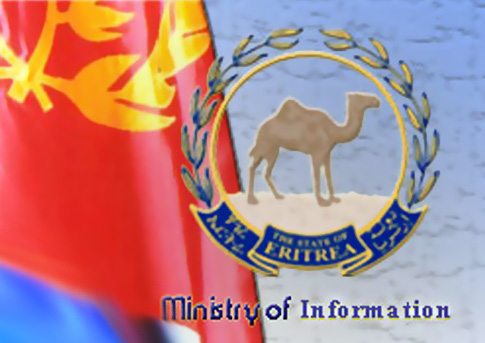The two day Istanbul Conference on Somalia, “Preparing for Somalia’s Future: Goals for 2015”, opened on Thursday. The meeting is bringing together a number of heads of state, prime ministers and ministers from 54 countries as well as Donors and International and Somali stakeholders, representatives of the UN, theOrganization of Islamic Cooperation and the AU, civil society groups and the private sector. Among those attending have been UN Secretary-General Ban ki-Moon, the UK Secretary of State William Hague, and US Assistant Secretary of State for Africa, Johnnie Carson. The Ethiopian delegation is led by Deputy Prime Minister and Foreign Minister Hailemariam Desalegn. Those attending from Somalia include President Sheikh Sharif, Prime Minister Dr. Abdiweli Mohamed Ali, several ministers and representatives of the TFG, Ahlu Sunna wal Jama’a, Somali business leaders, private sector and civil society, women’s and youth groups, the Diaspora and traditional elders. The administrations of Puntland and Galmudug, however, pulled out earlier in the week claiming that the conference was "not a Somali-owned process,” that the purpose and agenda of the conference were "ambiguous" and that it was intended to look for an unacceptable fresh start to the peace process. Somaliland announced on Sunday that it would be attending the meeting.
Participants are discussing Somalia’s recovery and development as well as ways to support its political transition. The first day of the conference concentrated on ways to rebuild the country, focusing such issues as reconstruction, energy and water; day two focused on political issues, in particular preparing for the end of the mandate of Somalia’s transitional government in August. One of the key items on the agenda was the creation of an international fund to pay for the long term training and arming of Somali security forces. UN Secretary-General Ban Ki-moon noted that international forces cannot solve Somalia’s problems in the long term and that the fragile country needs to develop its own security apparatus and strong security institutions. He said the international community must help Somalia build its own security apparatus, establish the rule of law and shed a culture of impunity. Somalia’s President Sheikh Sharif emphasized that his country does not have a national army and its security forces need military training.
Addressing the opening session Somalia’s Prime Minister, Abdiweli Mohamed Ali, said "Somalia is more than hungry faces in the news, pirates or extremists. It’s a diverse, rich land with an historical pedigree. I can foresee a day when Somalia has an active, vibrant economy buoyed by modern infrastructure and by highways". The Prime Minister said his government was now making real progress over agreement on the size of the future parliament and in guaranteeing women’s representation. He expected the Istanbul meeting to expedite the process. He said Somalia needed help from the international community but he emphasized that "Somalia’s future is in the hands of Somalis". He noted that an international trust fund was needed for long-term development. Prime Minister Abdiweli said the conference would be successful if the international community adopted a common position on the future of Somalia, and he called on it to mobilize resources to stabilize his country or risk a reversal of the recent gains made against Al-Shabaab.
The Ethiopian delegation is reflecting the position of IGAD that first, and foremost, there must be no delay and obstruction to end the transition; secondly no new elements should be produced that fall outside the scope of existing agreements and mechanisms and that risk sidetracking the peace process; and thirdly, at this critical juncture, there is a need to leave post-August processes to the Somalis themselves. Ethiopia will call for the international community to support a strict implementation of the roadmap, in accordance with the Addis Ababa agreement, and to provide in a timely manner for the comprehensive support Somalis need to turn around the future of the country.
Turkish Deputy Prime Minister, Bekir Bozdag, said Somalia was making significant political gains and had begun to create an opportunity for genuine peace and security after a long period of instability and conflict. Earlier, Turkey’s Foreign Minister had emphasized that resolving the conflict situation in Somalia was one of Turkey’s highest foreign policy priorities. It saw Somalia as neither an area of interest nor as a risk nor as a security threat, but as a place where “conscience of humanity was being tested.” Turkey, he said, was contributing to a stable economic and political environment in Somalia. Turkish officials had made several visits to Somalia; Turkish airlines have regular flights to Mogadishu from Istanbul; and the country has provided US$365 million in aid over the past year.
The United Nations Secretary-General’s Special Representative and head of the UN Political Office for Somalia, Ambassador Mahiga, noted that regional bodies such as the Organization of Islamic Conference and the Inter-Governmental Authority on Development had remained actively and constructively engaged in Somalia. He also welcomed the fact that key U.N. member states were deeply involved in promoting development, recovery and institution-building in Somalia. These included the United Kingdom which had convened the London Conference on Somalia in February and now Turkey with this “Istanbul II” Conference. Ambassador Mahiga said the Somali people need sustained long-term investments "in both productive and service sectors" to support Somalia’s recovery, development and the ongoing political transition. The right investment could deliver employment, enable equitable development and bolster much needed capacity in resilience. A paradigm shift in international assistance would allow the partners of Somalia to build the resilience of Somali households, communities and local institutions against crises in the medium and long-term, but this needs “real partnerships, strategic vision and integrated multi-sectoral approaches and reliable multi-year funding.” He spoke of the need to expand access to cheaper and sustainable energy and of efficient use of water resources. Transparency and accountability would help build confidence. Underlining the point, a World Bank report this week suggested that the Somali government has not accounted for most of the revenues and donations it received in 2009 and 2010, and that the TFG had received far more money than it had reported.
Source: A Week in the Horn – June 1, 2012 issue.
**************
Check the Somalia archive for related posts.





